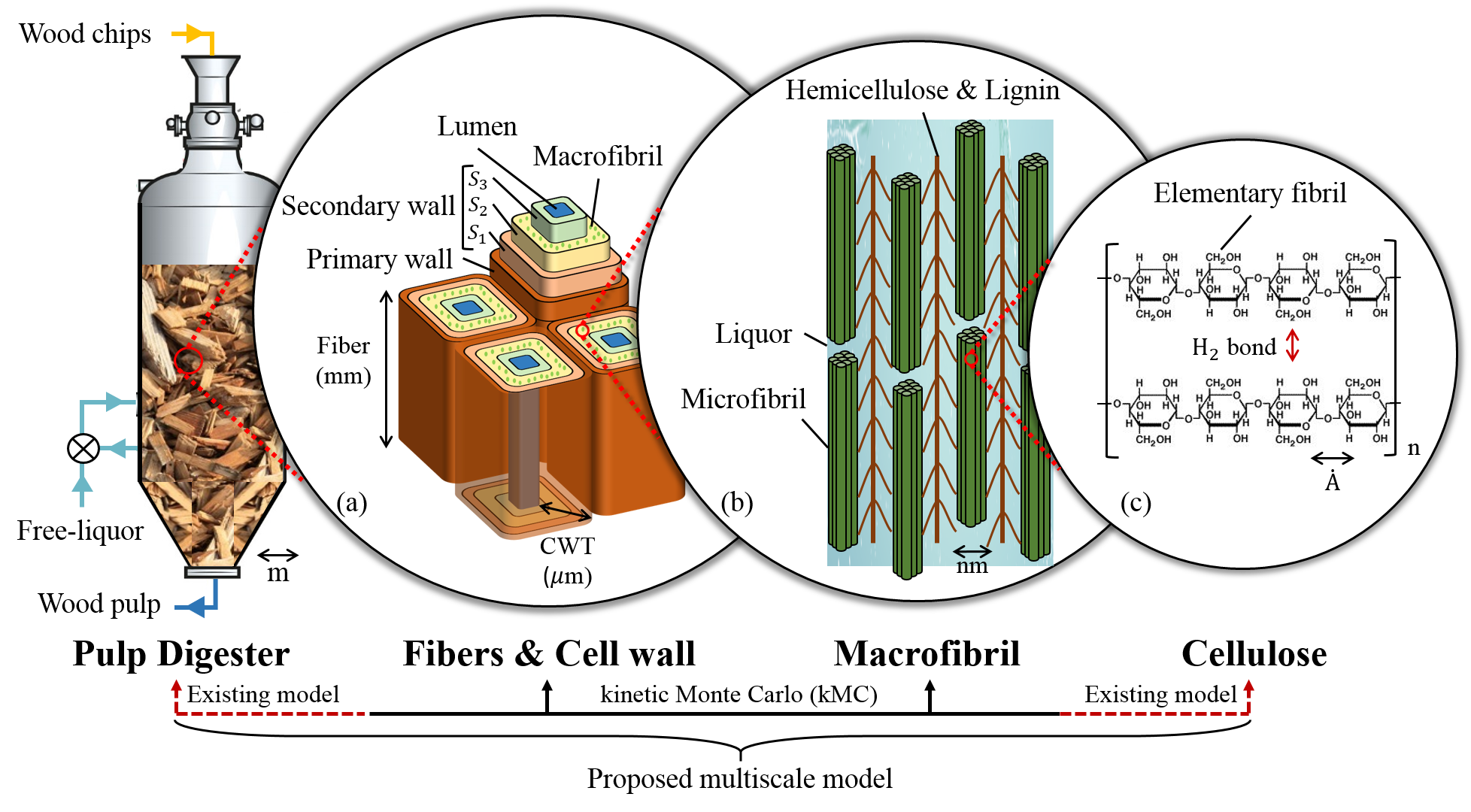 In pulping processes, wood chip properties extensively change as a result of delignification. Specifically, cellulose fiber morphology in the wood chip, such as fiber length and cell wall thickness (CWT), drastically changes and affects end-use paper product quality and recyclability. However, the evolution of this important microscopic paper property is not able to be described by existing mathematical models as they only focus on macroscopic properties such as the concentration profiles of components and the temperature profiles of the cooking liquor and wood chip.
In pulping processes, wood chip properties extensively change as a result of delignification. Specifically, cellulose fiber morphology in the wood chip, such as fiber length and cell wall thickness (CWT), drastically changes and affects end-use paper product quality and recyclability. However, the evolution of this important microscopic paper property is not able to be described by existing mathematical models as they only focus on macroscopic properties such as the concentration profiles of components and the temperature profiles of the cooking liquor and wood chip.
Motivated by this limitation, we developed a novel multiscale model by combining the mass continuity and thermal energy balance equations adopted from a modified “extended Purdue model” with a kinetic Monte Carlo algorithm to describe the microscopic events such as the evolution of CWT and Kappa number (i.e., residual lignin content in the wood pulp); otherwise, these microscopic properties of wood chips are not accessible by existing measurement techniques. To reduce the model complexity, a data-driven reduced-order model is developed, which is then used for designing a model-based feedback controller to regulate the microscopic properties of wood chips, which ultimately determine the paper properties (e.g., smoothness and stiffness) and recyclability.
Literature:
H. Choi and J. S. Kwon, “Modeling and control of cell wall thickness in batch delignification”, Comp. & Chem. Eng., 2019, 128, 512-523.
H. Choi and J. S. Kwon, “Multiscale modeling and control of Kappa number and porosity in a batch pulp digester”, AIChE J. 2019, 65(6), e16589.
